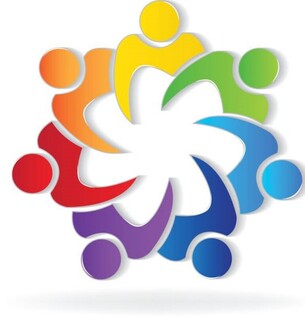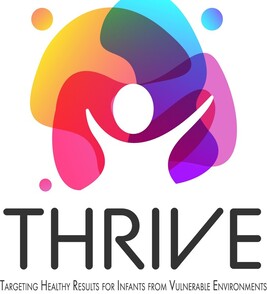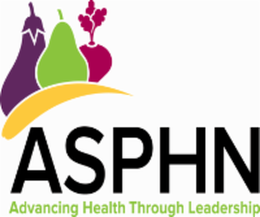Programs
HBCU Alliance Team for Maternal, Child, and Family Health Equity (HAT-MCH)

In April 2021, a call to action was issued to CAAPHP-member institutions to address infant and maternal mortality disparities among African American communities. Ten of the CAAPHP institutions decided to form the HBCU Alliance Team (HAT) for Maternal, Child, and Family Health Equity with the mission to embed funded maternal and child health academic programs at each institution. The goal is to build a more diverse, equity focused MCH health workforce at all levels, develop competent MCH leaders, and increase the problem-solving research capacity of HBCUs and Predominately Black Institutions (PBIs) to improve MCH outcomes in the communities they serve.
HAT-MCH has several objectives:
1) increase the number of MCH leaders and scholars prepared to serve underserved and underrepresented communities;
2) strengthen collaboration among MCH public health professionals at Minority-Serving Institutions (MSIs);
3) develop partnerships with funders, researchers, political partners, and government leaders to solve MCH problems;
4) foster advocacy of health equity and social justice through academic research in collaboration with
community partners;
5) coordinate a pipeline of public health leaders, policy experts, and scholars within institutions serving underrepresented and underserved communities; and
6) raise awareness of health disparities while promoting health equity.
For more information about HAT-MCH, the committee leader Dr. Yvonne Bronner of Morgan State University, which serves as the convening site for HAT-MCH, at [email protected].
HAT-MCH has several objectives:
1) increase the number of MCH leaders and scholars prepared to serve underserved and underrepresented communities;
2) strengthen collaboration among MCH public health professionals at Minority-Serving Institutions (MSIs);
3) develop partnerships with funders, researchers, political partners, and government leaders to solve MCH problems;
4) foster advocacy of health equity and social justice through academic research in collaboration with
community partners;
5) coordinate a pipeline of public health leaders, policy experts, and scholars within institutions serving underrepresented and underserved communities; and
6) raise awareness of health disparities while promoting health equity.
For more information about HAT-MCH, the committee leader Dr. Yvonne Bronner of Morgan State University, which serves as the convening site for HAT-MCH, at [email protected].
Targeting Healthy Results for Infants from Vulnerable Environments (THRIVE) Summit: HBCUs Partnering for Healthier Outcomes for Women, Children, and Families

The THRIVE Summit provides an opportunity for Historically Black Colleges and Universities (HBCU) and other Predominantly Black Institutions (PBI) public health faculty, staff, and students to engage each other and federal agencies in the critical work of eliminating health disparities, fostering health equity, and training the next generation of public health professionals to save our mothers, children, and families. The goal of the Summit is to increase awareness and engagement of multilevel stakeholders of maternal, child, and family health within the Black community.
The inaugural THRIVE Summit was sponsored by HRSA, in partnership with CAAPHP, and was held virtually from 12 pm until 4 pm EDT on April 7, 2022 as a part of National Public Health Week.
The 2nd Annual THRIVE Summit will be held on Thursday, April 6, 2023, from 11 am to 4 pm Eastern Standard Time. For updates, please visit the Summit website here. For more information about THRIVE Summit, contact Dr. Tokesha Warner at Tennessee State University, who served as the lead planner for the Summit, at [email protected].
The inaugural THRIVE Summit was sponsored by HRSA, in partnership with CAAPHP, and was held virtually from 12 pm until 4 pm EDT on April 7, 2022 as a part of National Public Health Week.
The 2nd Annual THRIVE Summit will be held on Thursday, April 6, 2023, from 11 am to 4 pm Eastern Standard Time. For updates, please visit the Summit website here. For more information about THRIVE Summit, contact Dr. Tokesha Warner at Tennessee State University, who served as the lead planner for the Summit, at [email protected].
Partners
ASPHN Health Equity Internship

The Health Equity Internship Program of the Association of State Public Health Nutritionists (ASPHN) has partnered with CAAPHP to increase promote the internship to students at CAAPHP institutions, which helps to fulfil the goals of both ASPHN Health Equity Internship Program and CAAPHP to diversify the public health and health education workforce.
ASPHN Health Equity Internship Program interns and their health equity projects are highlighted each month in CAAPHP’s newsletter to raise awareness of how CAAPHP institutions are address health disparities and building the capacity of the future public health workforce. Through this partnership, CAAPHP has been able to enhance its organizational capacity and invest in a sustainable future for CAAPHP.
For more information about the ASPHN Health Equity Internship Program, visit the website here.
CAAPHP welcomes partnership from other organizations, companies, government agencies, and nonprofits with similar visions and goals. If you are interested in partnering with us, please reach out to us at [email protected].
ASPHN Health Equity Internship Program interns and their health equity projects are highlighted each month in CAAPHP’s newsletter to raise awareness of how CAAPHP institutions are address health disparities and building the capacity of the future public health workforce. Through this partnership, CAAPHP has been able to enhance its organizational capacity and invest in a sustainable future for CAAPHP.
For more information about the ASPHN Health Equity Internship Program, visit the website here.
CAAPHP welcomes partnership from other organizations, companies, government agencies, and nonprofits with similar visions and goals. If you are interested in partnering with us, please reach out to us at [email protected].
CAAPHP Collaborations
CAAPHP works with many agencies interested in enhancing the health of African American and multicultural communities through preventative public health measures and/or intentionally focusing on building the capacity of HBCUs and MSIs to strengthen the public health and health education workforce.
Organizations interested in pursuing a relationship with CAAPHP but may not yet have activities or tasks specified for a detailed agreement, are welcome to collaborate with us. By engaging with each other, we can determine synergies and common goals that will lead us to partnering in the near future.
Groups interested in learning more about how to collaborate with CAAPHP, should reach out to us at [email protected].
Here is a list of organizations currently engaging with CAAPHP:
African American Research Collaborative
American College of Rheumatology (ACR)
Association of Schools and Programs of Public Health (ASPPH)
Center for Surveillance, Epidemiology and Laboratory Services (CSELS), Centers for Disease Control and Prevention (CDC)
Consortium of HBCU Institutions-Interdisciplinary Rehab Programs (CHIRP)
HBCU Advisory Council of the Society for Public Health Education (SOPHE)
Health Resources & Services Administration (HRSA), Maternal & Child Health Bureau (MCHB), US Department of Health and Human Services
Research Triangle Institute (RTI) International’s Survey Research Division (SRD)
Organizations interested in pursuing a relationship with CAAPHP but may not yet have activities or tasks specified for a detailed agreement, are welcome to collaborate with us. By engaging with each other, we can determine synergies and common goals that will lead us to partnering in the near future.
Groups interested in learning more about how to collaborate with CAAPHP, should reach out to us at [email protected].
Here is a list of organizations currently engaging with CAAPHP:
African American Research Collaborative
American College of Rheumatology (ACR)
Association of Schools and Programs of Public Health (ASPPH)
Center for Surveillance, Epidemiology and Laboratory Services (CSELS), Centers for Disease Control and Prevention (CDC)
Consortium of HBCU Institutions-Interdisciplinary Rehab Programs (CHIRP)
HBCU Advisory Council of the Society for Public Health Education (SOPHE)
Health Resources & Services Administration (HRSA), Maternal & Child Health Bureau (MCHB), US Department of Health and Human Services
Research Triangle Institute (RTI) International’s Survey Research Division (SRD)
